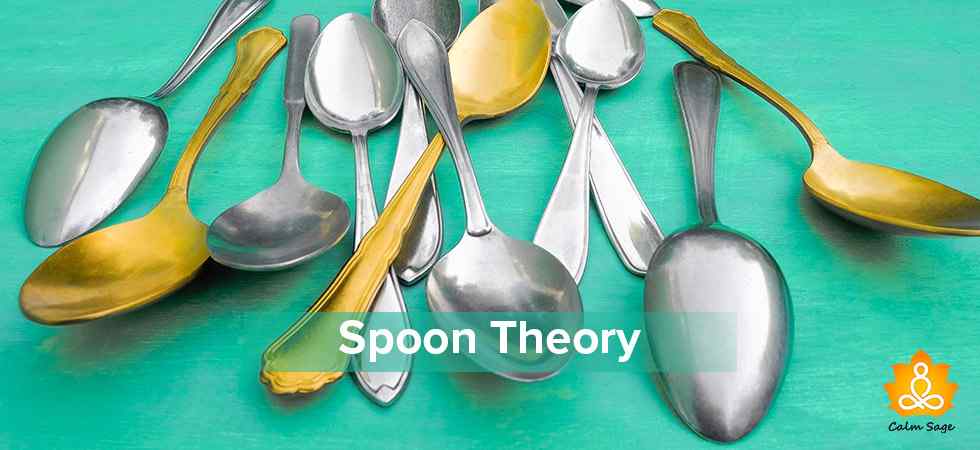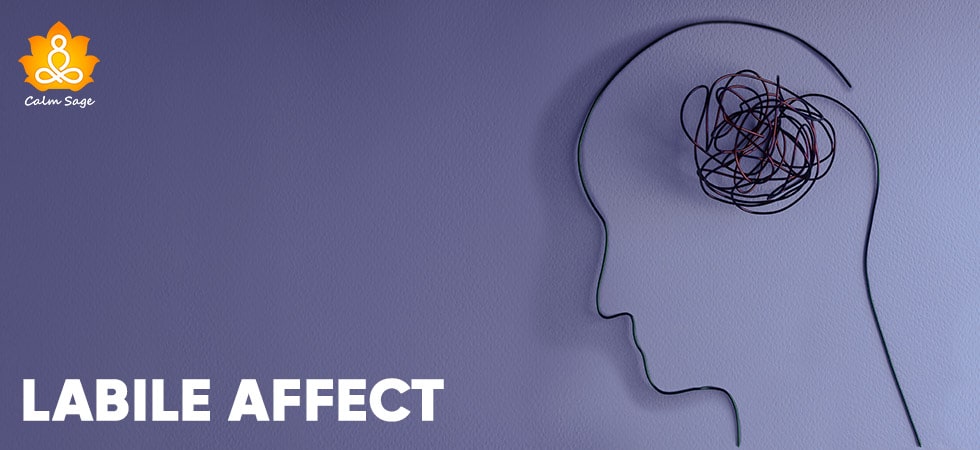What is spoon theory used for, and what are its benefits

“Spoon theory,” does the term make you think we will talk about something related to food? Well, that is not the case. The theory has nothing to do with eating. It is a metaphor that explains how people with chronic mental illness feel exhausted and have limited energy compared to those without illness. The theory conveys the experience of people struggling with chronic illness to others.
Most of us don’t have to think twice before spending energy on dressing, showering, meeting, driving, planning a meal, meeting friends, grocery shopping, and performing other tasks. In contrast, some struggle with even performing basic tasks.
One day they do several, but they don’t have the energy to get a glass of water on a bad day. These are the people suffering from chronic, autoimmune, and other diseases.
In this blog, we’ll understand how spoon theory works for these people, its benefits, and how it relates to mental health.
What is Spoon Theory & where did it come from?
The term “Spoon Theory” was coined by Christine Miserandino, a woman struggling with chronic disease. While sitting with a friend in a restaurant, when asked how she would explain what it is like to live with lupus, she instantly collected 12 spoons from her and nearby tables and handed them to her friend.
She said each spoon represented a unit of energy, and people with chronic illnesses, whether lupus or any, start their day with a limited number of spoons. Every task, like taking a shower, getting ready for work, or boarding a train, costs a spoon. Even skipping meals too. When all the spoons are used, the person no longer has the energy to perform other tasks.
This analogy quickly caught on and became widely recognized as it was the most simple and relatable way to explain the concept of limited energy reserves to those who might not experience chronic illness themselves. Also, it serves as a reminder that individuals with chronic illnesses must be mindful of how they allocate their energy throughout the day.
It encourages them to prioritize self-care and make conscious choices about activities to engage in, helping them better manage their condition and maintain their well-being.
How Does Spoon Theory Work?
Spoon theory helps people with chronic illnesses or limited energy levels understand the finite amount of energy a person has for the day. Each activity or task a person undertakes throughout the day “costs” them a certain number of spoons. Once they run out of spoons, they may not have the energy to do anything else. Therefore, they must use the spoons mindfully.
Let’s take the example of a person who wakes up with ten spoons (energy reserves for the day). Every activity the person performs throughout the day, whether getting out of bed, taking a shower, cooking a meal, and so on, costs a certain number of spoons. Say showering and waking up costs one spoon each, while cooking costs two, and so on. The number of spoons each activity costs varies depending on its physical or emotional demands.
This means if the person has to make it through the day without running out of spoons, tasks must be prioritized, and attention must be paid to how and where the energy is spent. If the person overlooks this and spends more spoons, they might not have enough spoons to perform tasks for the rest of the day, leading to fatigue, physical discomfort, or even a “crash” when too exhausted.
People who use spoon theory identify themselves as spoonie and often plan their day based on the number of spoons they think they have. They sometimes skip tasks that aren’t important, take breaks between activities, or reschedule non-essential activities if they run low on spoons. However, on special events or important meetings when more energy is required than usual, they “borrow” spoons from the next day, knowing they might have fewer spoons to work with tomorrow.
This way, Spoonies can manage their day and work efficiently. Also, using the spoon theory, you can explain to others about your energy limitation. If someone invites you to an event and you decline, you can say you’re low on spoons that day. It is a simple way to communicate that you might not have the energy for socializing.
How to know if you are a spoonie?
If you embrace the concept of spoon theory for managing energy and dealing with chronic health conditions, certain indicators can help you identify if you are a “spoonie.”
- Chronic Health Conditions: If you are grappling with a chronic illness or health condition that brings about fatigue, pain, or limited energy, you might align with the identity of a spoonie. Such conditions can significantly impact your daily energy levels, leading you to manage your activities based on the principles of spoon theory. This enables you to allocate energy where it’s most needed and conserve it where possible.
- Daily Energy Management: It’s natural to feel low on energy occasionally. Yet, if you consistently plan your day according to your energy levels and make activity choices based on your energy demands, you likely identify as a spoonie. Adopting the spoon theory involves strategically organizing tasks to optimize energy expenditure for work and other activities.
- Limited Energy Reserves: Do you often sense that your energy is limited? Do you sometimes need to borrow energy from the upcoming day? Or do you require assistance to perform essential tasks due to low energy? Experiencing these situations are signs of you being a spoonie. Some days you may have enough energy to do all the tasks yourself, while on bad days, you might feel lethargic. If this resonates, you’re likely a spoonie.
- Managing Activity: If working on a task feels overwhelming or exhausting, it could indicate you are a spoonie. People who resonate with spoon theory take frequent breaks, have rest periods as part of their schedule, or switch between tasks. This effectively manages their energy levels, leading to work efficiency.
- Adjusting Plans: Have you felt the need to modify or cancel plans based on your energy levels? Does getting the energy for socializing seem difficult on low-energy days? Such cases, where energy defines what activities you can perform, indicate you are a spoonie.
- Explaining Energy Levels: When you’re tired or low on energy, do you use the “spoons” analogy to describe your feelings? If you use phrases like “I’m running low on spoons today” or “My energy levels are depleted,” it indicates a spoonful’s perspective.
- Online Communities: If you actively participate in spaces dedicated to spoonies, connect with support groups or engage with social media platforms where spoonies share experiences and seek energy management assistance, you’re likely part of the spoonie community.
- Conserving Energy for Priorities: If you store your energy deliberately for the task you think is of utmost importance and postpone others, you’re applying the core principle of spoon theory. This is a defining trait of a spoonie.
- Lifestyle Influence: If your daily routine, energy usage, and approach to social interactions and recreational activities are defined by energy levels, you live within a spoonie perspective.
However, you must remember a spoonie perspective isn’t confined to any stringent criteria. It’s about adopting a framework to manage energy effectively. If this concept resonates with your energy management approach, possibly you are a spoonie.
However, if you are still confused about whether or not you are a spoonie, connect to the spoonie community, join groups, or seek assistance to manage your energy levels better. If the ideas shared in these groups align with you, you are likely an integral part of the Spoonie community.
How to manage Life as a Spoonie?
Adopting spoon theory and living a life of a “spoonie” requires a distinctive approach to daily routines and self-care practices.
Task prioritization and staying mindful of the limited daily energy reservoir help acknowledge this constraint. Thus, regulating your activities and energy levels efficiently is possible. Also, this practice empowers you to channel your energy into crucial tasks and fosters an understanding of the energy demands associated with various activities.
In addition, establishing practical and achievable daily goals becomes easy. You learn to break big tasks into manageable segments, prevent overwhelming exhaustion, and minimize feelings of disappointment, thereby rendering goal attainment and gratification.
Amid these efforts, self-care activities that rejuvenate you, like meditation or following a hobby, should be taken care of for holistic well-being.
Furthermore, attuning to your body’s signals is imperative. Acknowledging the need for rest in the face of pain or fatigue is essential, as neglecting these cues could lead to a depletion of energy for the day.
Integrating rest breaks strategically into your daily routine can significantly contribute to recharging your energy levels, even through brief moments of respite. Learning to decline invitations or tasks that might deplete your energy is a form of self-preservation.
This approach ensures you have ample energy for essential activities and tasks. Furthermore, seeking assistance or delegating responsibilities is perfectly acceptable, recognizing that you don’t have to bear the load alone.
Nourishing your body with proper nutrition and staying hydrated further bolsters your energy levels. Opting for well-balanced meals that provide sustained energy throughout the day is paramount. Moreover, enhancing the comfort of your living and work spaces by incorporating ergonomic elements, suitable lighting, or assistive devices can significantly enhance your energy management.
Flexibility within your daily schedule is key, considering that energy levels, or “spoons,” can vary daily. Adapting your plans based on energy fluctuations allows for a more adaptable and less stressful approach. Stress management techniques such as deep breathing, mindfulness, and engaging in enjoyable activities can also contribute to energy preservation.
Engaging with fellow spoonies through support groups or online communities offers a sense of understanding and encouragement. Sharing experiences and advice within these spaces fosters a sense of camaraderie and alleviates feelings of isolation. Communicating your needs to loved ones and colleagues is crucial in garnering support and empathy.
Appreciating even the smallest achievements is essential. Recognize that navigating life as a spoonie necessitates resilience and determination, both warrant acknowledgment. Remember, being a spoonie is merely one facet of your identity. By embracing the principles of spoon theory and implementing these strategies, you can confidently confront life’s challenges, prioritize your well-being, and work towards achieving your goals.
Benefits of Spoon Theory
Spoon theory offers a straightforward and effective means of communicating self-care, setting boundaries, gaining insights into others’ experiences, and advocating for those grappling with chronic illness. The theory sheds light on how individuals with autoimmune or chronic diseases manage their energy throughout the day and imparts a crucial lesson to those in good health – that energy levels can fluctuate for anyone at any given time. Let’s delve into the benefits of spoon theory in more detail.
Communication: Spoon theory is a potent tool for articulating the challenges faced by individuals with chronic illness, particularly the limitations imposed by limited energy reserves. By utilizing spoons as a symbolic representation, individuals can easily convey the fatigue and constraints they encounter. Simple phrases like “I’m running low on spoons today” allow others to grasp their situation vividly.
Emphasis on Self-Care: Recognizing that energy reserves are finite prompts a heightened awareness about energy expenditure. This, in turn, encourages a proactive approach to self-care. Prioritizing activities based on their significance and aligning them with personal values becomes a means to conserve energy for vital tasks while avoiding burnout.
Setting Boundaries: The theory extends beyond energy management to instill the art of saying no and setting boundaries without guilt. Individuals running low on energy can politely decline engagements by simply stating, “I’m running low on spoons for the day and won’t be able to attend.” This candid explanation communicates their situation effectively and commands respect for their boundaries.
Developing Empathy and Understanding: Not everyone comprehends the daily struggles those with chronic illnesses endure. Spoon theory offers an invaluable glimpse into the challenges of individuals with autoimmune or chronic diseases, fostering empathy and dismantling misconceptions about unlimited energy. This, in turn, nurtures more supportive and understanding relationships.
Advocacy: As the spoon theory gained traction, it ignited advocacy efforts and heightened awareness about the low energy levels experienced by individuals with chronic conditions. This movement prompted increased consideration for people with invisible disabilities, leading to initiatives to create more accessible and accommodating environments.
Understanding Mental Health through Spoon Theory:
Spoon theory’s application isn’t limited solely to physical health challenges. It has the potential to illuminate the struggles of individuals grappling with mental health issues. Similar to quantifying energy for physical tasks, spoon theory can be applied to emotional and mental tasks. This approach empowers individuals to manage their emotional and mental well-being effectively and efficiently. Spoon theory can be beneficial when applied to mental health:
Heightened Awareness: Spoon theory introduces an innovative way to quantify emotional and mental energy through spoons. This quantification enhances self-awareness, enabling individuals to monitor their emotional and mental energy levels and manage them proactively.
Reduced Guilt and Pressure: Spoon’s theory validates the importance of taking breaks and declining tasks when energy is low without harboring guilt. The theory explains why someone might feel drained, offering individuals a legitimate reason to prioritize self-care. This understanding alleviates the guilt associated with being unable to fulfill commitments due to energy constraints.
Effective Stress Management: Applying spoon theory to mental health encourages individuals to manage their energy strategically. They can reduce stress and maintain a balanced mental state by thoughtfully allocating their emotional and mental energy. This approach enhances their ability to cope with challenges and perform daily tasks effectively.
Enhanced Communication: Spoon theory can bridge the gap in understanding between individuals with mental health challenges and their loved ones. Expressing energy levels regarding spoons provides a tangible way to convey emotional states and limitations, fostering more empathetic and supportive interactions.
Creating a Common Language: Spoon theory can serve as a universal language to communicate the intricacies of mental health challenges. This shared understanding facilitates conversations about mental well-being, reduces stigma, and encourages open dialogues about managing energy for emotional and mental tasks.
The Spoon Language
While immensely beneficial, Spoon theory is not without its limitations. The theory simplifies complex challenges, potentially leading to misunderstandings about the true extent of these challenges. Its effectiveness varies among individuals, and it primarily addresses physical energy management, leaving out the emotional and mental dimensions.
Additionally, cultural and social factors influencing energy management might not be fully considered. Despite these drawbacks, spoon theory remains a valuable tool for communicating, advocating, and understanding the energy dynamics of chronic health and mental health challenges. Its application can enhance empathy, self-awareness, and the overall well-being of individuals.




















